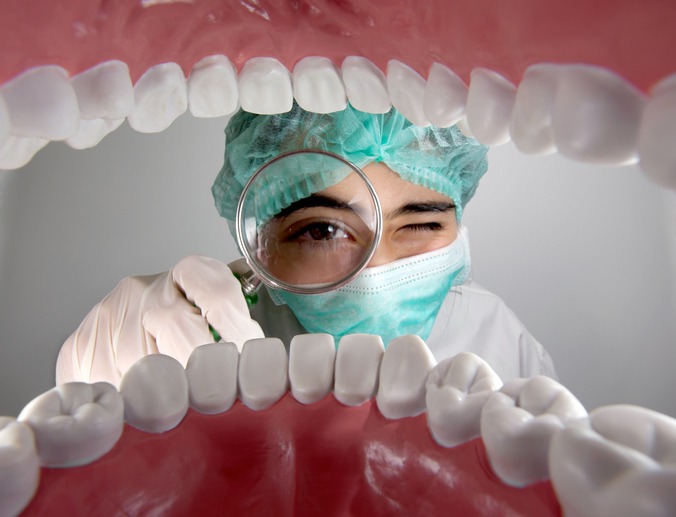Dental infections can cause serious discomfort if they aren’t handled as soon as possible. Dentists know exactly what steps to take to treat these problems. Find out exactly what procedures and treatments your dentist might use when dealing with oral infections.
What Methods Do Dental Professionals Use to Treat Mouth Infections?
Identifying and Diagnosing Infections
The first step in addressing an oral infection is for the dentist to determine the exact type of infection. Your dentist visually inspects your mouth and looks for redness or swelling. They might also ask about your symptoms, such as pain, sensitivity, or fever, which can point towards an infection.
During diagnosis, dentists sometimes use dental X-rays. X-rays help show hidden infections that might be under fillings, teeth, or deep inside the gums. After diagnosing, your dentist carefully formulates an appropriate treatment plan specifically tailored to your needs.
Treatment with Antibiotics
If there’s an identified bacterial infection, your dentist might prescribe antibiotics. These medications help control or eliminate the harmful bacteria that’s causing problems in your mouth. Antibiotics are particularly useful before dental procedures to prevent an infection from spreading further into the body.
Antibiotics work most effectively alongside other dental treatments, ensuring infections don’t return. Your dentist provides clear instructions about how often you need to take your antibiotics so you recover quickly. Completing the entire prescribed dose is critical for full recovery and reducing risks.
Scaling and Root Planing
If the infection involves periodontal disease, dentists often use scaling and root planing. Scaling removes plaque and tartar from your teeth and gums, eliminating areas where bacteria might grow. Root planing helps by smoothing the tooth roots and removing infected tissue to restore gum health.
This procedure is usually performed under local anesthesia, keeping you comfortable during treatment. For best outcomes, your dentist might schedule follow-up visits to observe your healing process. Good oral hygiene after scaling and root planing prevents future infections.
Dental Fillings and Crowns
When tooth decay leads to infections, dentists frequently use dental fillings to remove bacteria and fill the tooth cavity. Fillings consist of durable materials that restore function to your teeth while blocking out harmful bacteria. Crowns become necessary when the damage is extensive and fillings won’t suffice.
A crown is placed over your entire tooth surface, effectively sealing out bacteria and strengthening the tooth. Crowns resemble your natural teeth, making them great aesthetically pleasing options. Crowns and fillings protect your teeth from further complications and decay.
Root Canal Therapy
For more severe tooth infections, dentists might recommend root canal therapy. These infections usually affect the inner tooth pulp, causing significant pain or swelling. Root canal therapy involves opening the tooth, removing infected pulp tissue, thoroughly disinfecting the tooth, and sealing it to keep bacteria from entering again.
Some dentists also include less invasive options like restorative dentistry as preventive treatments after dealing with serious infections. Such treatments keep your oral cavity healthy, prevent bacterial growth, and encourage recovery. Regular dental visits following treatments strengthen oral health and ensure your teeth remain infection-free.
Tooth Extraction Methods
In cases where damage is too great, your dentist might need to extract an infected tooth. Tooth extraction helps prevent infections from spreading into neighboring teeth and worsening your situation. Dentists perform extractions safely using advanced tools and numbing methods to ensure a pain-free removal process.
Preventive measures after tooth extractions include protective treatments like dental sealants in Duluth, GA, to shield tooth surfaces prone to bacterial infiltration. Sealants protect teeth effectively against decay, providing ample defense once you’ve healed from extractions. They’re beneficial for people vulnerable to plaque buildup as well.
Preventive Routine Dental Visits
Regular visits to your dentist help detect potential infections early before they become major issues. Dentists inspect teeth, gums, and mouth tissue periodically to catch signs early and provide immediate care. For ongoing success with oral health, visit your dentist every six months or as recommended.
Routine visits encompass dental cleanings and oral health assessments like oral cancer checks. Professional cleaning removes stubborn tartar and plaque buildup that everyday brushing often misses. Keeping regular dental appointments reduces the likelihood of serious oral infections developing.
At-Home Advice for Prevention
A fundamental part of treating and preventing oral infections includes proper daily habits. Your dentist advises regularly brushing twice daily, flossing between meals, and using dentist-recommended mouthwash. Maintaining exceptional hygiene routines reduces bacteria that lead to infections.
-
Brush twice daily with fluoride toothpaste
-
Floss daily to remove interdental bacteria
-
Use antimicrobial mouthwash consistently
-
Reduce sugary and acidic food intake
Besides hygiene, diet also influences oral health significantly. Dentists recommend reducing sugary or sticky foods that can attract harmful bacteria. It’s wise to consume healthy food options, such as vegetables and fruits, supporting your dental health against infections.
Recognizing Early Symptoms
Knowing the symptoms of an oral infection allows you to seek timely treatment and prevents complications. Alert your dentist if you experience painful chewing, swollen gums, unusual tooth sensitivity, facial inflammation, or persistent bad breath. Early detection leads directly to quicker recovery.
-
Persistent toothache or pain in gums
-
Swollen, inflamed, or bright red gums
-
Recurring bad taste or breath odor
-
Hot and cold sensitivity in teeth
To locate skilled professionals who can help with immediate diagnoses and treatments, you can easily check them on maps. It’s always helpful to choose accessible, local professional dental help for prompt care. Proximity allows emergency visits if infections become unexpectedly severe.
Final Thoughts
Dentists offer essential care to handle oral infections swiftly and effectively. Timely dental visits, recommended procedures, preventive measures, and good hygiene all significantly contribute to maintaining healthy teeth and gums. By seeking professional help and following simple preventive measures outlined above, you can effectively handle oral infections and maintain ongoing oral health.



More Stories
Comprehensive Family Dentistry: One-Stop Solutions for All Ages
Selecting the Ideal Family Dentist for Your Loved Ones
How Do I Evaluate a Senior Caregiver’s Reliability?